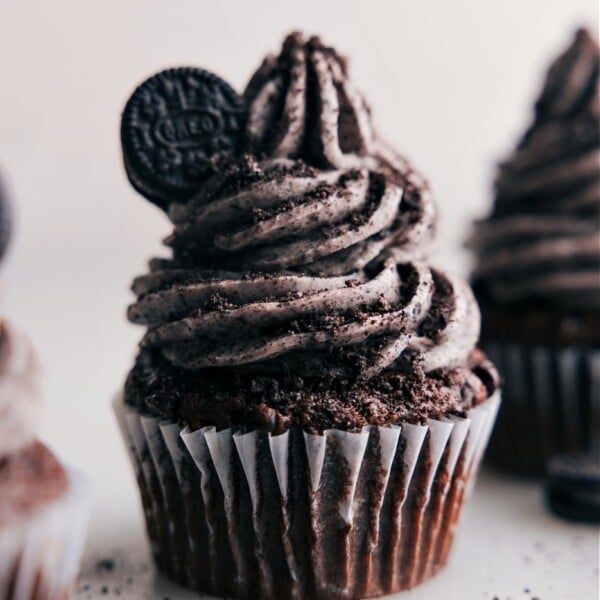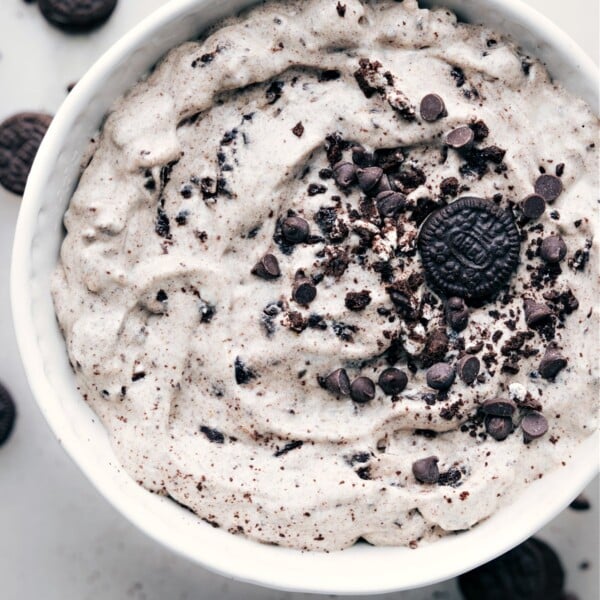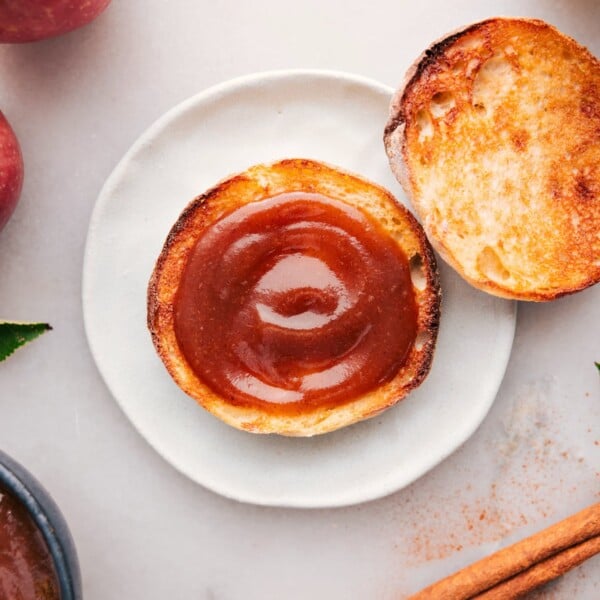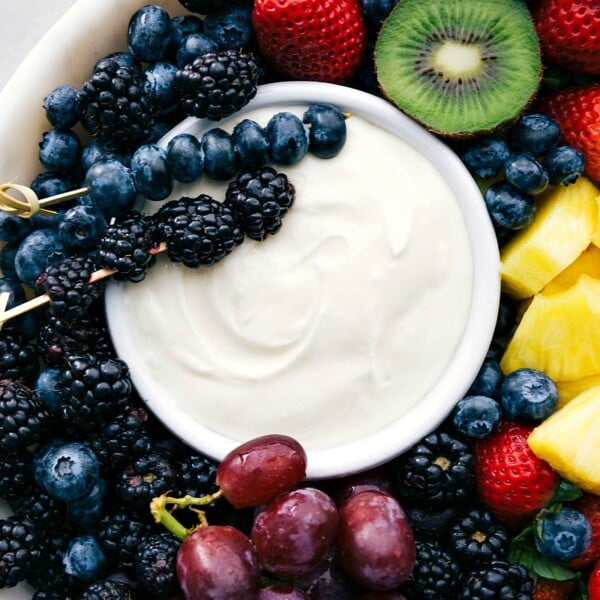This Vanilla Frosting is a creamy, 5-ingredient topping that’s smooth, easy to make, and perfect for piping or decorating your favorite treats!
Try these frostings next: Cream Cheese Frosting, Chocolate Buttercream Frosting, or Peanut Butter Frosting.
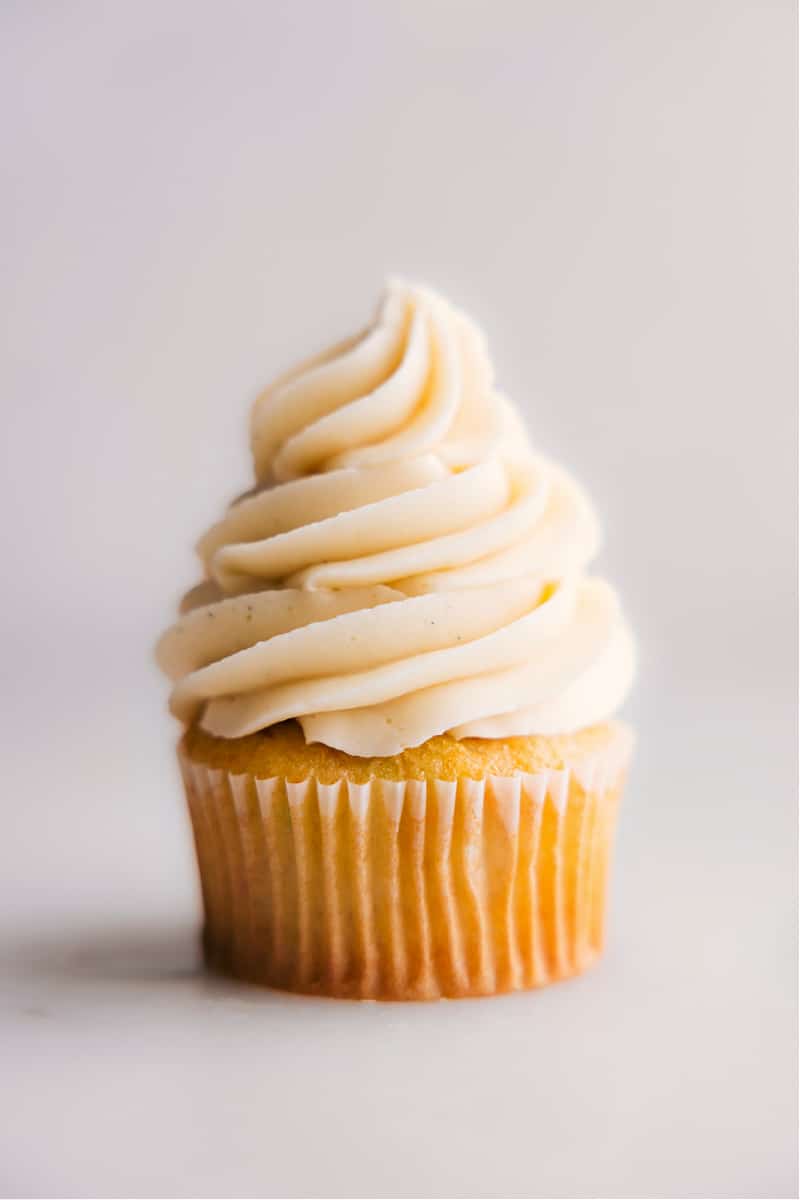
A Great All-Purpose Frosting Recipe
I’ve been using this vanilla frosting recipe I created for years—it’s so simple I never even wrote it down. But after bringing cupcakes topped with it to a party and getting asked over and over if the recipe was on my site or if I could share it, I knew it was time to nail down the exact measurements.
This frosting is incredibly easy to make with either a hand mixer or a stand mixer.
It’s made with basic pantry and fridge staples, and it’s so simple to customize with food coloring or sprinkles for special occasions. This is one of those go-to recipes you’ll want in your back pocket!
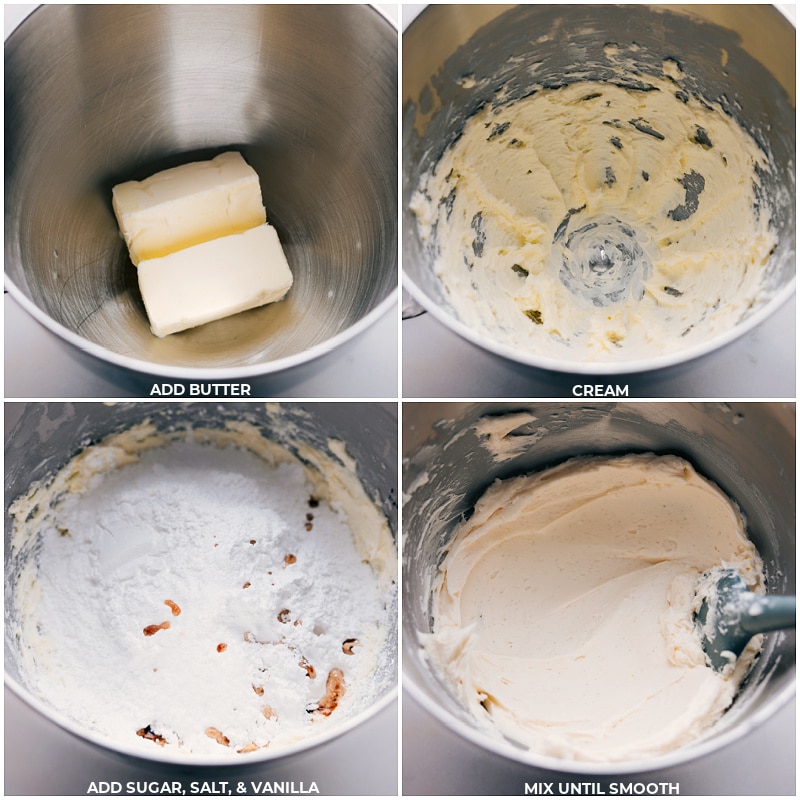
Vanilla Frosting Recipe Ingredients
- Unsalted butter: Let the butter soften at room temp for smooth and easy mixing.
- Powdered sugar: If it’s clumpy, sift it first to keep the frosting smooth.
- Heavy cream: Makes the frosting rich and creamy. You can swap it with milk or half-and-half, but use less since they’re thinner.
- Vanilla: Adds classic flavor. For stronger flavor, use vanilla bean paste.
- Salt: Use fine salt so it blends in well. Adjust to taste.
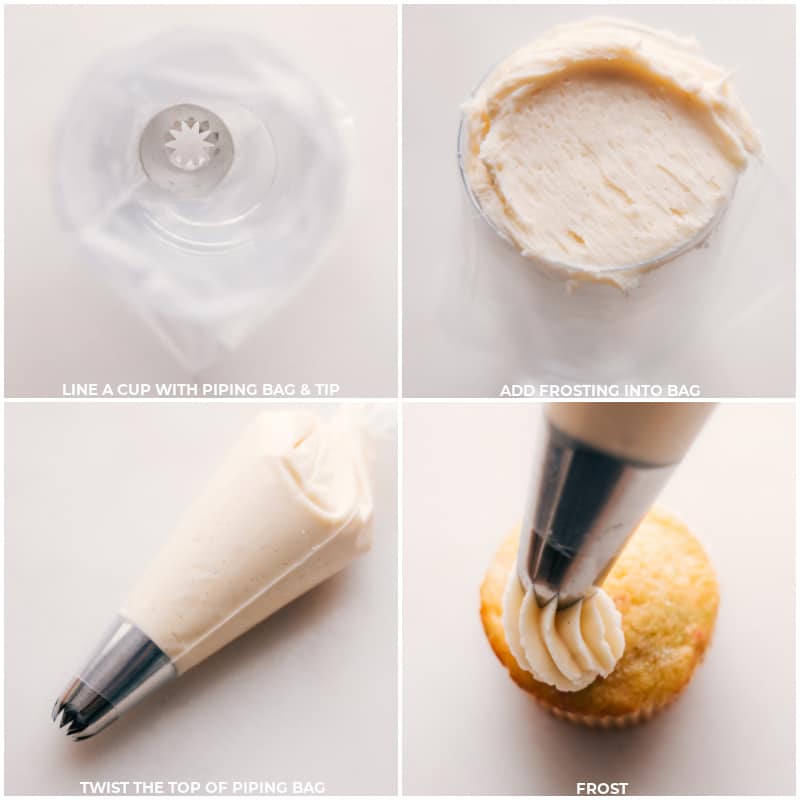
How To Make Vanilla Frosting Recipe (Tips)
- Soften butter: It should be soft enough to mix easily but not melted.
- Sift sugar: Sift powdered sugar to get rid of lumps and make frosting smooth.
- Add cream slowly: Add heavy cream or milk a little at a time. If it’s too thick, add more cream; if it’s too thin, add more sugar.
- Taste: Add a bit of salt if it’s too sweet or a little more sugar if it needs.
- Mix until smooth: Beat for a few mins until the frosting is creamy and smooth.
- Frost: This recipe makes enough for a 9×13-inch sheet cake, a 2-layer 8 or 9-inch round cake, or 12 generously frosted cupcakes (or 24 lightly frosted).
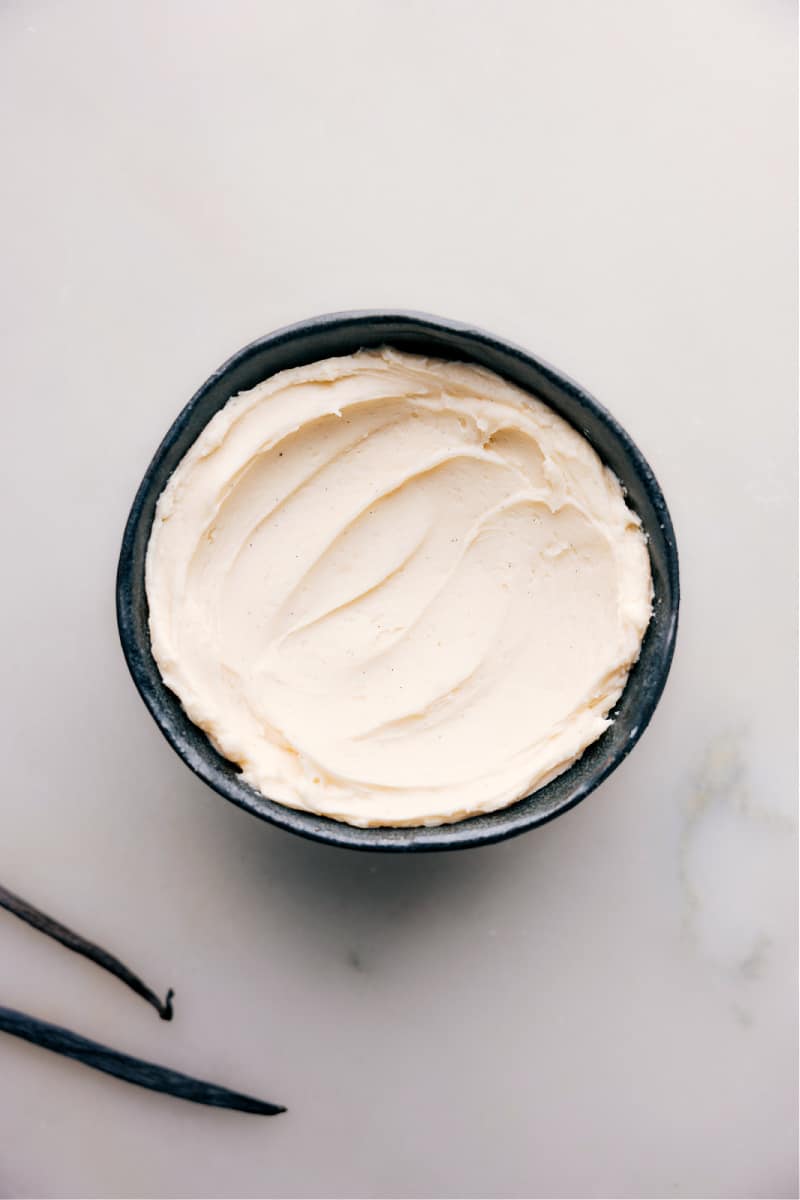
How To Use Vanilla Frosting
- Parfaits/Trifles: Layer it with cake, cookies, or brownies for a rich treat.
- Cakes/Cupcakes: Spread or pipe it onto cooled cakes or cupcakes. It pairs well with chocolate, vanilla, or Funfetti flavors.
- Cake Filling: Use between cake layers to add flavor and hold them together.
- Cookie Sandwiches: Spread it between two cookies for a fun dessert.
- Doughnut Filling: Fill doughnuts with frosting for a fun treat.
- Brownies: Frost freshly baked brownies for the best topping.
- Sweet Dip: Use it as a dip for fruits or pretzels.
Quick Tip
To quickly bring butter to room temp:
- Cut into pieces: Slice butter into small chunks to quicken softening (it’ll be ready in about 15-20 minutes).
- Warm glass method: Heat a glass with hot water, empty it, dry it, and place it over the butter, helping it soften through gentle heat.
- Microwave method: Microwave butter for 8 seconds at 10% power, checking and repeating if necessary, being careful to soften rather than melt it.
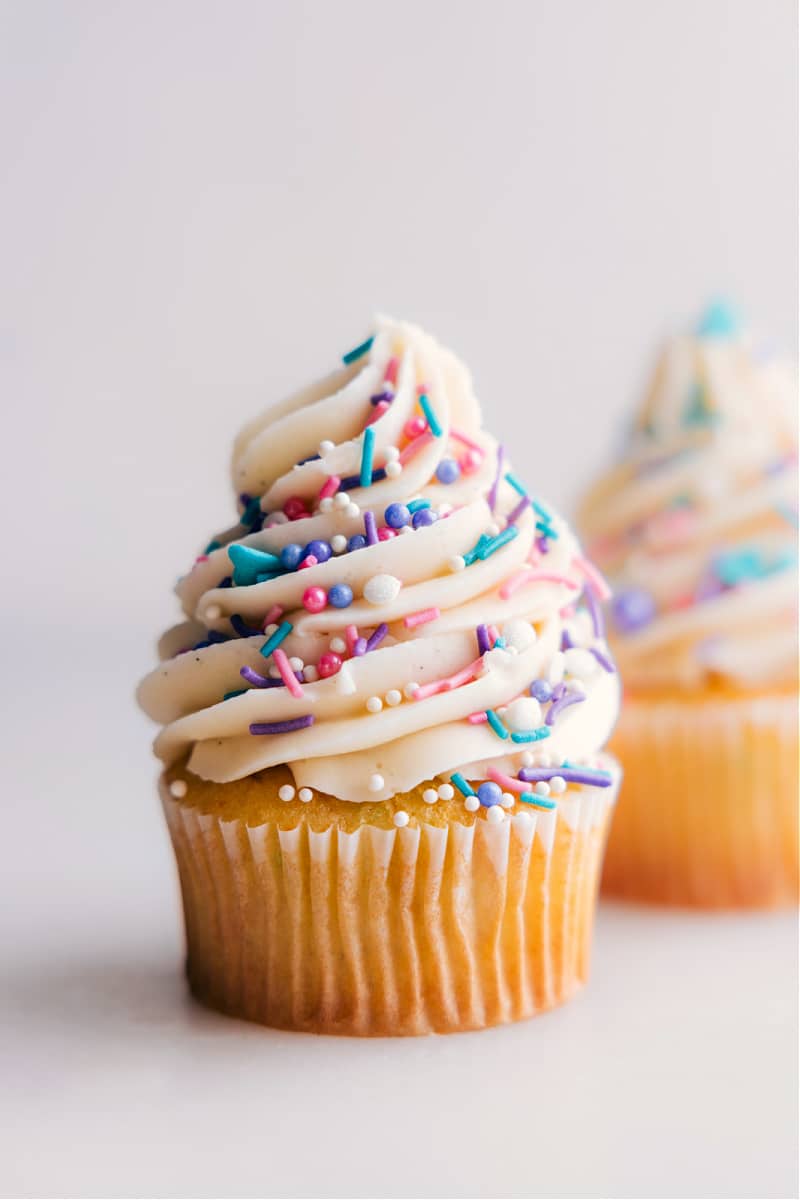
Storage
Leftover Vanilla Frosting?
Keep leftover Vanilla Frosting in a sealed container in the fridge for up to a week or the freezer for up to three months. If frozen, let it thaw, warm to room temp, and stir before using.
If making frosting ahead, store it in the fridge. Take it out an hour before using to let it soften and stir if needed.
More Dessert Recipes:
- Lemon Icebox Cake with only four ingredients!
- Dessert Cheese Ball brownie-batter flavor
- Swig Sugar Cookies with vanilla frosting!
- Cinnamon Roll Cake made in 30 mins–no dough rising!
- Brookies brownies and cookies in one delicious mashed-up treat
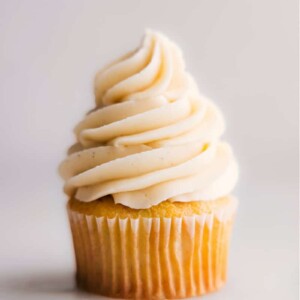
Vanilla Frosting
Equipment
- Stand mixer or hand mixer
Ingredients
- 16 tablespoons unsalted butter softened to room temperature, see note 2
- 4-1/2 cups powdered sugar up to 5 cups, see note 3
- 4 to 6 tablespoons heavy cream or milk in a pinch, see note 4
- 1-1/2 teaspoons vanilla bean paste or 2 teaspoons vanilla extract
- 1/8 teaspoon salt
Instructions
- In a stand mixer fitted with a paddle attachment, or in an extra large bowl using hand mixers, beat the room temperature butter on medium speed until creamy, 90 seconds to 2 minutes.
- Add powdered sugar, vanilla extract, and salt. Beat on low speed, gradually adding cream 1 tablespoon at a time (begin with 4 tablespoons).
- Switch mixer to medium-high speed and beat for several seconds until the liquid is whipped into the frosting. Turn off mixer and scrape the sides and bottom. Adjust consistency by adding more cream (1 tablespoon at a time) if frosting is too thick or more powdered sugar (2 tablespoons at a time) if frosting is too soft.
- Switch mixer to medium-high speed, beating for 1–2 minutes until frosting is smooth and creamy (but not whipped!). Taste and adjust for salt and sweetness.
Recipe Notes
Nutrition
Nutrition information is automatically calculated, so should only be used as an approximation.


